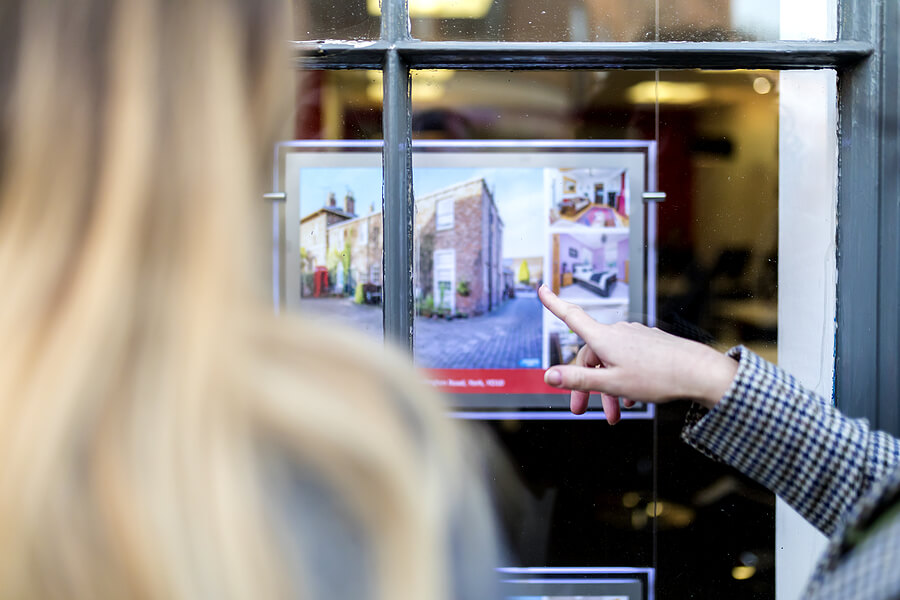
Getting on the property ladder has become more challenging over the past few years, with rising mortgage rates, high house prices, and the overall increase in the cost of living. However, with the cost of renting also rising sharply in many regions of the country, it can be worth the effort despite all the negative headlines.
Buying a home is a complex process and it can be easy to make mistakes that could lead to unnecessary delays, or even mean that you fail to be offered a suitable mortgage deal at all. However, there are several steps that can be taken to give yourself the best chance of securing that dream property. Here are some points to bear in mind.
When you decide to buy a property, it’s an exciting time and one of life’s important milestones. It can be tempting to spend hours scouring Rightmove, and start booking in appointments to view anything that catches your eye. However, this can lead to a lot of wasted time and effort both for yourself and the other parties involved.
Before you even begin your search, you need to work out how much you can afford to borrow and set a realistic budget. This will depend on how much deposit you have saved up, and how much you earn. There are plenty of online mortgage calculators that allow you to work out a ballpark figure from your salary and total deposit.
Even if on paper it looks as though you can afford to borrow enough, a poor credit score can still be a barrier to getting a good mortgage deal. The main credit reference agencies (CRAs) in the UK are Experian, Equifax, and TransUnion, and they collect information on any problems in your past financial performance.
This could be something as small as being late paying your mobile phone bill or a parking ticket, or it could be something major such as a County Court Judgement or a bankruptcy. Lenders use this information to decide how reliable you will be at paying back a loan, and also as a way to confirm your identity.
Therefore simply not being on the electoral roll can lead to a rejected mortgage application. You should also be aware that being turned down for credit will also be recorded on your file, and lower your credit score.
The better your credit score, the higher your chances of accessing the best mortgage deals. However, it may still be possible to get a mortgage even if you have a bad credit history. The best course of action in this case is to contact a mortgage broker who has experience of dealing with similar situations, and will have market access to specialist lenders.
An Agreement in Principle (AiP) is a statement from a lender that says they are willing to lend you a certain amount in principle. This is based on the information that you or your broker has given them, and also from a credit check. It’s not an official offer, but it can help to give more weight to any offer you put in for a house and put you ahead of the competition.
As previously mentioned, a lender will run a credit check as part of their test of your creditworthiness as a borrower. The weight a lender puts on your credit score will vary according to their individual assessment criteria, but in most cases a good credit score will significantly boost your chances of getting a deal.
There are many steps you can take to maintain your credit score, such as setting up direct debits to ensure that all bills and payments are met in a timely manner and you never miss a payment. Unfortunately, any past errors will stay on your credit file for six years, and very serious issues such as bankruptcies may remain for longer.
However, if the issues were not in the recent past, it is still possible to boost your credit score with responsible financial decisions. Also bear in mind that a lender will look at your monthly outgoings to check how much you are spending.
Therefore it is prudent to avoid taking on other financial commitments such as a new car or foreign holiday in the months before your application. It’s also a good idea to stay in the same job if you can, as this is evidence of steady employment and income.
If you want to speak to adverse credit mortgage brokers in the UK, please get in touch with us today.
Your home may be repossessed if you do not keep up with your mortgage repayments.
There may be a fee for mortgage advice. The actual amount you pay will depend on your circumstances. The fee is up to 1% but a typical fee is £595.
Back to Blog
Create Finance Limited is an appointed representative of Mortgage Advice Bureau (Derby) Limited which is authorised and regulated by the Financial Conduct Authority.
Create Finance Limited. Registered Office: Office 20, Sadler Bridge Studios, Bold Lane, Derby, DE1 3NT. Registered in England Number: 09582938.
Think carefully before securing other debts against your home. Your home may be repossessed if you do not keep up repayments on a mortgage or any other debt secured on it. There may be a fee for mortgage advice. The actual amount you pay will depend on your circumstances. The fee is up to 1% but a typical fee is £595.
The guidance and/or advice contained within this website is subject to the UK regulatory regime, and is therefore targeted at consumers based in the UK. The actual rate available will depend upon your circumstances. Ask for a personalised illustration.
We may receive commission that will vary depending on the lender, product or permissible factors, The nature of any commission model will be confirmed to you before you proceed. Create Finance Ltd are a credit broker, not a lender.